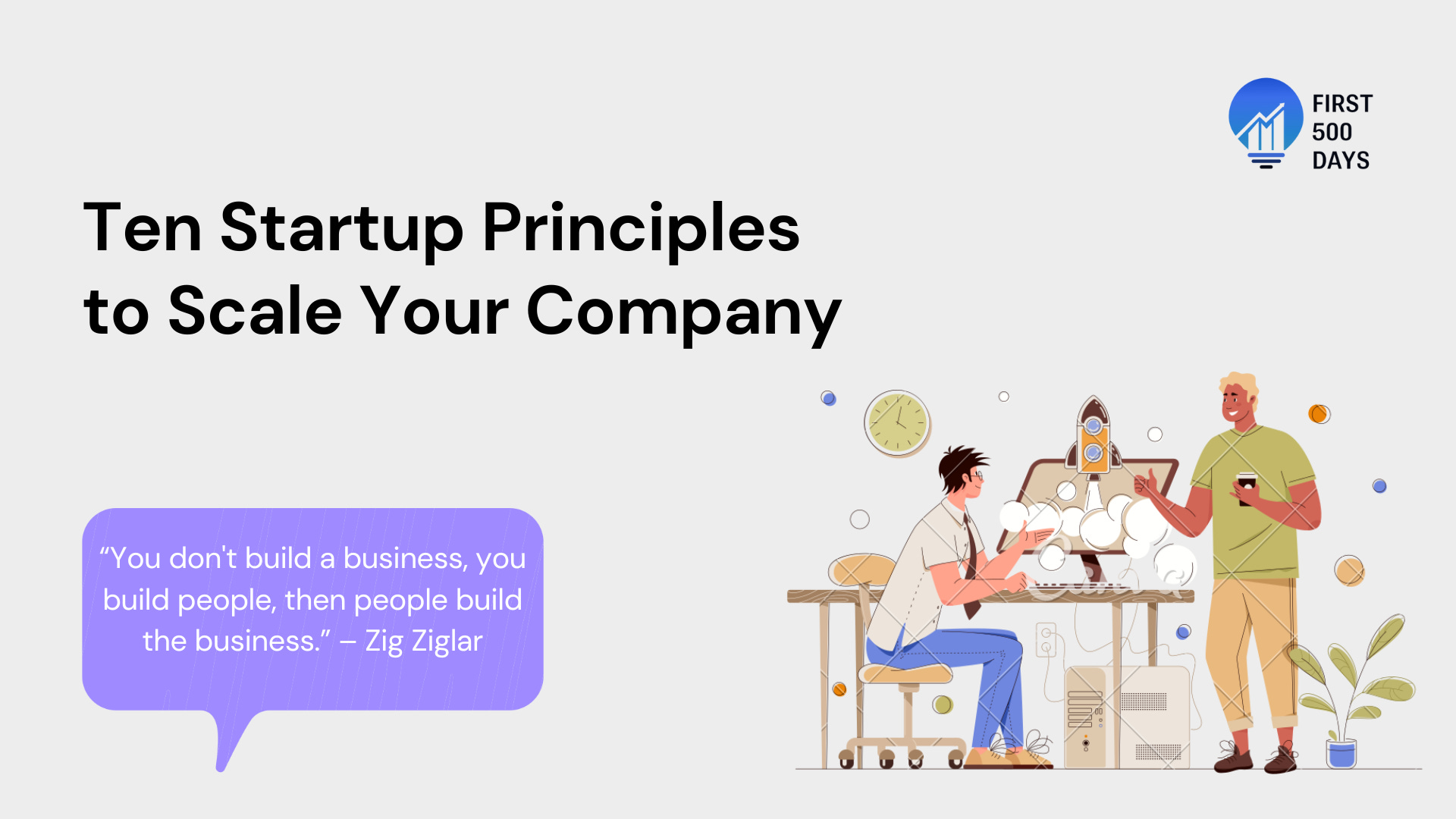Scaling in startup mainly depends on two principles: Capability and Capacity
Hey guys, greetings for the day!
In this fast-paced world, everyone wants a good and efficient strategy, some good tips and tricks, or, as we say, shortcuts for their startup to excel and gain success, but often we need to remember that this is a marathon and not a sprint. And as we know, marathons are won by the sheer principles of athletics, hard work, and passion, and the same applies to the startup industry.
Today, in this post we will take a look at 10 guiding principles, or as we better put it, the 10 Startup Commandments to scale your company from zero to one.
1. Focus on customers and not competitors
The customer is the real hero of the market out there, and his actions speak the loudest volumes when defining success metrics. Keeping the real focus on competitors shifts the direction, and that’s where competitive intelligence comes in handy.
2. Put your best people on the biggest opportunities
The best people could even move mountains for you and are a great asset when it comes to the workforce. Great contributors are attracted to opportunity, and that’s where their true contribution lies, not fixing someone else’s mistakes.
3. Sell a story, not your product
Your company isn’t a product, it is a story. Great stories attract great customers and hence mean more chances for success turnout. A great story differentiates, compels, and resonates, and hence one’s focus should be on selling an interesting and value-adding story.
4. There is no formula for dealing with hard things
Your company isn’t a product; it is a story. Great stories attract great customers and hence mean more chances for success turnout. A great story differentiates, compels, and resonates; hence, one should focus on selling an exciting and value-adding story.
5. Make probability-weighted decisions
Always optimize for the most significant potential impact, taking into account the greatest downside of failure. Some low-probability risks have significant upsides and low downsides. Remember a quick yet trustable formula,
Potential impact = Potential outcome * Probability of the outcom
6. Know when to optimize for speed vs quality
Always pushing for quality results or running hell-bent on deadlines can be disastrous, and one must always keep in mind the tradeoff between quantitative and qualitative success. Evaluation of such an optimization ensures proper time management and prevents waste of efforts.
7. Work to your team’s strengths
A good leader takes his time to understand his/her team member’s strengths and hence allocates tasks based on them to utilize their strong parts and ensure good results. Getting over-ambitious sometimes results in people misjudging their peers’ personalities in tasks that do not match their strengths.
8. Focus on leverage
The point of leverage in a startup sector is where inputs can disproportionately overpower outputs. Some examples are-
A better conversion funnel affects sales
A better sales process involves revenue
A better onboarding process affects the churn rate.
9. Discuss mistakes constructively
Mistakes are common and should be dealt with normality rather than getting upset. Self-learning and re-introspecting points where one loses out is a very productive activity and produces better outcomes in the future.
10. Don’t quit
It might feel that a series of losses or setbacks are getting over you, and you might quickly feel overburdened and overwhelmed. Still, every bit of our complex work compounds, and indeed at one time or another, the time worked productively, the tiny wins and the little moments’ progress add up to one definition of success.
Congrats! You now know the pitfalls and what to focus and what not to!
Thanks for reading


